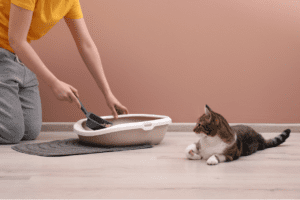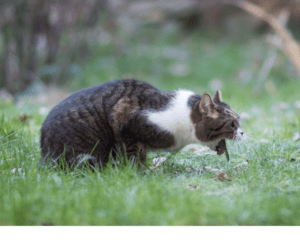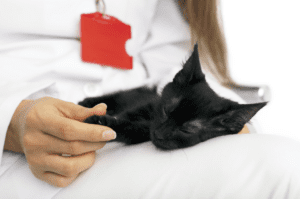Various diseases may leave changes and damages in our body the moment they hit, and it’s no different for our furry buddies. Parvo is one of the most lethal illnesses your pup can contract to the point that it may leave you asking, “can parvo cause permanent damage?”
Some diseases are easier to handle to the extent that rest and over-the-counter drugs are enough. These include fatigue, fever, allergy, and seasonal illnesses like common colds. However, some conditions last for some time and even a lifetime. Some of these diseases can even be inherited, acquired, and passed to the next generation.
Another characteristic of a disease that should be noteworthy for pet owners is the amount and intensity of symptoms and resulting damages. In this article, we’ll discuss the possibility of permanent damage to dogs infected with Parvo.
Will A Canine Suffer Permanent Damage From Parvo?
After discovering the Parvo disease, are you now asking, “can parvo cause permanent damage?”
The answer to this timely question is yes, it is possible to have some permanent damage to infected dogs. The canine parvovirus is a spreading condition and can leave a dog suffering for years before it gets diagnosed.
Parvo can take two tracks when attacking a particular dog; it can be cardiac or through the digestive system. If it’s left undiagnosed, that is when the virus gets the chance to leave permanent impairment to your pet.
Here are some possible permanent damages for a dog that’s infected with parvovirus on the digestive tract:
- Damaged intestinal lining
- Intestinal infection
- Low nutrient absorption
- Chronic diarrhea
- Kidney and liver damage
On the other hand, when a dog has Parvo replicating through its cardiac system, its heart and bone marrows are the ones that are likely to suffer irreversible damage. Here are some of these impairments:
- Heart failure
- Weak immune system
- Cardiac arrhythmias
- Damage myocardial tissues
Note that your dog may also experience some of these parvo in dogs symptoms and consequences from Parvo simultaneously with others. They can be short symptoms like lethargy and difficulty breathing, to other permanent damages like stunted growth and even death.
How Can A Dog Catch Parvo?
Since the previous section has already answered the question of can parvo cause permanent damage, this part will help you see how the virus gets transmitted to dogs.
First, the parvovirus has survived from its first discovery until now through unvaccinated, positive canines. Since viruses don’t carry any mechanism to reproduce by themselves, they use a host’s body to do it for them. This is the reason why parvo can mostly be observed damaging the digestive and cardiac systems, which are sites for dividing cells in the body.
From an infected dog — whether it’s a pet, a stray, or a rescue — there are several ways by which the virus can be spread to uninfected dogs. Some of them are as follows:
- Shared cage or kennel
- Shared beddings
- Contaminated dog wash
- Shared grooming tools
- Shared feeding bowls
- Shared toys
As unfortunate as it is, the canine parvovirus spreads too easily. A pet can acquire it from a simple visit to the park where an infected dog left its traces. Other than direct contact or ingestion, owners must also note that parvo can survive on certain surfaces. This is why even though there may be no other dogs around when you take the dog out for a walk, it’s still possible to acquire it from previously infected surroundings.
How To Identify Parvo-Infected Dogs?

Parvo-infected dogs may die a few days after birth or survive as adults that may spread the virus. Unlike diseases that involve treatable causes, parvovirus treatment is just not possible— though a positive dog cannot be infected twice.
While the virus takes a significant time to run its course, there can be early symptoms that will allow one to be suspicious of its presence. Here are some of the short-term symptoms to watch out for:
- Loss of appetite
- Vomiting
- Weight loss
- Fever
- Dehydration
- Weakness
- Lethargy
- Diarrhea (may contain blood)
- Sepsis
Once you observe one or a few early signs on your pup, it’s best to schedule a proper diagnosis immediately. Since this virus is already set to cause suffering and permanent damage to a pet, countering its symptoms and further spreading should be a priority.
While parvovirus is highly infectious, it is yet to be proven if it’s hereditary. As such, a dog can only acquire it by contact with infected dogs. In this aspect, the best way to prevent it is through early vaccination and sanitary practices.
Conclusion
After answering the question, “can parvo cause permanent damage,” it’s still necessary to find out how the virus spreads and how to prevent it from infecting one’s pet. At the very least, it is essential to act on those answers afterward to save your furry friend.
Viruses and diseases spread more easily when dogs and other animals don’t receive the care they need. Visit Doobert now and help care for these dogs and provide them with loving homes!






